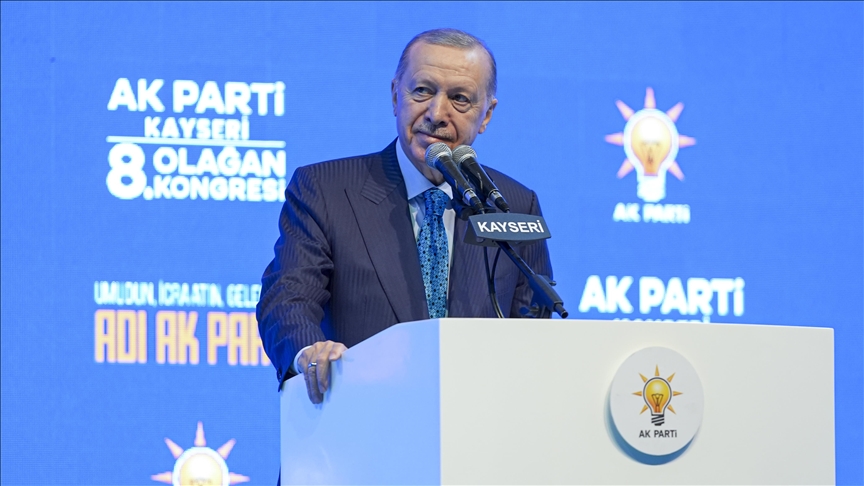Turkey works to mend U.S. ties
“Our friendly relationship of mutual understanding with the United States will go on,” Gul told reporters.
“The Iraqi leader should not exploit parliament’s decision yesterday. If they misunderstand and delay cooperation with the United Nations then the chance of peace will reduce,” Gul said.
The United States and Britain have drawn up a second U.N. resolution designed to authorize force against Iraq, stating that it has failed to respect U.N. demands that it scrap nuclear, biological and chemical weapons programs.
Overnight, dozens of anti-war demonstrators gathered in central Ankara to celebrate the vote. A jubilant crowd chanted “No to War,” waved flags. Some embraced each other smiling.
Rusen Cakir, a commentator who has specialized in the AKP, told Reuters he thought it quite possible the government would re-submit the motion for deployment of U.S. forces, possibly on Tuesday. But it could not risk a second rejection.
“If it does it probably would impose party discipline and not allow a free vote like Saturday,” he said. “If they are pressed to vote yes, I’m sure some will leave the party.”
PERILS FOR THE ECONOMY
In rejecting Washington, Turkey stands to lose a multi-billion-dollar U.S. aid package to shore up a frail economy recovering from its deepest recession since 1945. A $16 billion IMF loan package could also now be seriously in question.
Financial markets could face a grueling day on Monday, investors having long assumed the government motion would pass.
Gul said his priority was to protect the economy.
“The government will evaluate the situation calmly. Whatever measure has to be taken will be taken. There is no need for concern,” he said.
Several influences may have borne on the result. Deputies were disturbed by antiwar demonstrations on the streets of Ankara and by messages from their constituents. They may also have been irritated by rancor creeping into discussion, public and private, of terms for deployment offered by Washington.
Sharp divisions in Europe over the wisdom of military action raised doubts in party ranks. President Ahmet Necdet Sezer had also questioned the constitutionality of the resolution — no small matter for a party already viewed by the powerful military with deep suspicion for its Islamist roots.
In Washington, U.S. officials said they still held out hope that Turkey would come around. Defense officials said they could quickly adjust war plans.
• Deployments
If Turkey does not budge, it may also have less of a say in the future of northern Iraq, where it fears the emergence of a Kurdish state that could rekindle armed Kurdish separatism in its own territory.
The three-month-old AKP government, which denies any Islamist inclinations and espouses pro-Western policies, had already dragged its feet for weeks in talks with Washington. The upset will deal a serious blow to the authority of the government and its leader Tayyip Erdogan who led the party to a sweeping victory in elections only four months ago.



